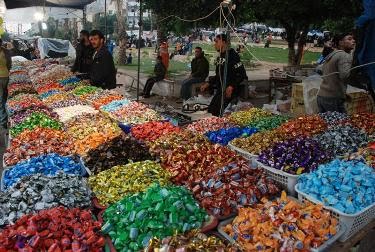At every opportunity, Perry promotes and parrots the Palestinian line on the causes and effects of the conflict. Along the way, he recycles several tendentious quotes and mendacious material which appeared in a similar piece he penned last November.
Perry writes:
Note the Palestinians are "incensed". Elsewhere in the story, they are "angry", "frustrated", "have little faith", and "react" to Israel which, for its part, "provokes", "threatens to undermine", and is led by an "extreme right-wing government".Clashes this month indicate the rising tension between Palestinians and a right-wing Israeli government which has incensed Palestinians with moves they believe aim to deepen the Jewish state's control of the holy city and its hinterland.
Nowhere in his "analysis", does Perry interview or quote Israelis who might have their own take on which side is doing the provoking and which side is reacting. Nor does he convey Israeli skepticism of Palestinian motives when the latter stone Jewish worshipers, engage in mob violence, declare war because a 150-year-old Jerusalem synagogue (destroyed by the Arabs) is restored, and threaten Jews with genocide.
Perry does however, quote a Palestinian student:
That "protest" involved Palestinians throwing rocks at Israeli border police, several of whom were also injured. Might explain why the student fears arrest."It [the US] is Israel's No. 1 ally," said one 20-year-old student, who took part in a protest at an Israeli checkpoint outside Ramallah this week in which seven Palestinians were wounded... "I expect that there will be a third Intifada," added the student, a member of Abbas's Fatah faction. He asked not to be named for fear of arrest over his role in the protest. [italics ours]
Perry also quotes Palestinian political "analyst" Hani al-Masri:
But Perry doesn't mention that al-Masri is on record as actually inciting for an intifada, including terrorism, which Perry masks behind the Arab euphemism "armed struggle" -- a violation of the Reuters Handbook."The PA is working to delay an Intifada. If it wanted an Intifada, it would have started. But it can't prevent it forever. What it is going on in Jerusalem accelerates the move towards an Intifada."
Finally, Perry repeats a bald-faced lie for which he has become (in)famous on this site:
As documented, the Palestinian Authority led by Mahmoud Abbas has decidedly not ruled out violence against Israel, maintaining it as a strategic option when the time is right.The Palestinian Authority, largely funded by Western governments, rules out violence on its part against Israel -- in contrast to the Intifada from 2000, when various forces loyal to Abbas's late predecessor Yasser Arafat fought Israel.
Keep swinging, Tom.






























.jpg)









